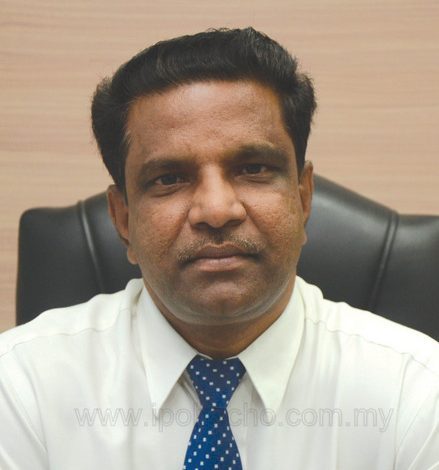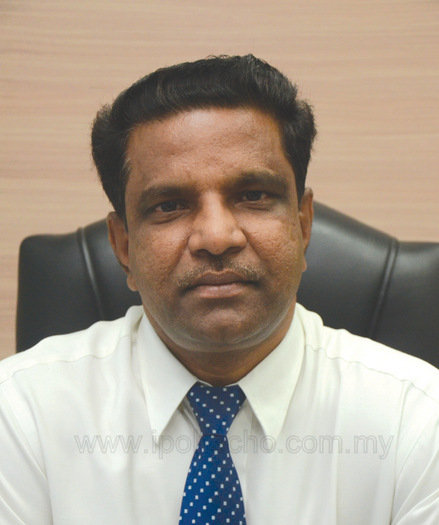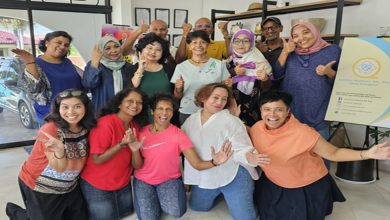

Wellness
By SeeFoon Chan-Koppen


In the meantime, many new developments have occurred in the medical world and Dr. Vishvanathan has not been resting on his laurels. Where he was injecting growth factors then (concentrated from centrifuging patients’ own blood) into knees, shoulders, hips, and other injured areas, he has now incorporated all the latest discoveries and learnings from stem cell research into his practice and advises patients on its uses and limitations. His primary concern however, is to dispel misconceptions about stem cells held by the public.
After having administered the growth factor injections (some repeatedly) to more than twelve thousand (12,000) patients since 2007 when he first trained in this technique in Spain, under the auspices of The European League Against Rheumatism (EULAR) which represents the patient, health professional and scientific societies of rheumatology of all the European nations, Dr. Vishva can now predict how well these injections work for different stages of degenerative joint diseases. Classifying them into four stages, his experience shows that in Stage 1 and 2 arthritis, there is an 80% chance of success, Stage 2-3, 50-60% Stage 3-4, 30%, Stage 4 which is very advanced has at most a 20% chance of success. Growth factors will only work on joints which are still in alignment, beyond which surgery is the only option.
Recent advances in stem cell research however has now upped the ante on regeneration of joints and joint disease. Regeneration is now the buzzword on the medical front with Stem cells leading the way as the panacea for all aging and degenerative diseases. Dr. Vishva however is the voice of caution, and proceeded to give me a mini lecture on the current stage of stem cell research and what is possible, permissible and even plausible.
“Stem Cells are not the panacea for all ills as some believe. Yes some headway has been made in the field as I discovered when I was in Beijing on a study tour. But it’s important for me to dispel the myth that stem cells will give you back the body of a 20 year old. Stem Cell therapy is now available in Malaysia but there is no guarantee of success. The results which I have found promising, will vary from person to person. It is also very important to understand the different types of stem cells that are being used with its own set of consequences.” he stressed.
There are different types of stem cells being researched currently, some which carry ethical issues like embryonic stem cells and are forbidden in most countries. Cord blood cells coming from the umbilical cords of newborns, can be stored for future health issues for the child and its family members.
The area of most interest in regenerative medicine lies in adult stem cells in what is known as Induced Pluripotent Stem Cells or IPS for short. These can be harvested from the patient’s skin, adipose tissue (fat) or bone marrow where stem cells are abundant.
When harvested from bone marrow, these stem cells can be used immediately and injected fresh into the site of injury. When skin or adipose tissue is used, a more complicated process is involved, where (as in skin) a one cm square of skin is removed from the back of the patient’s ear, sent to the lab where it is subjected to various chemical processes and stem cells are extracted and grown. This is a very accurate process where the exact number of stem cells can be measured and that one skin sample can be kept infinitely to generate any number of future stem cells. The stem cells harvested are then injected back into the patient.
The only drawback to this process is the time involved (takes about 3 months) and the costs which varies between RM10-15,000) and the specimens have to be sent to Kuala Lumpur. Nevertheless, for the well to-do, it is ironic that groups of them have been known to come from Kuala Lumpur to have this done as it is still cheaper in Ipoh!
“And what about the age of the patient? The older the less stem cells surely?” I asked.
“That is true”, answered Dr. Vishva, “it just takes longer to cultivate enough of the stem cells. But it is do-able”, he emphasised.
“There are also banks of allogenic stem cells available which are stem cells donated by healthy individuals which are available to the public, this being a topic to be discussed with your private physician”, he offered.
Dr. Vishvanathan’s clinic: Suite 2-25, KPJ Ipoh Specialist Hospital, 26, Jalan Raja Dihilir, 30350 Ipoh. Tel: 05 240 8777 Ext. 8508/8509 Email : tvishna@ish.kpjhealth.com.my

